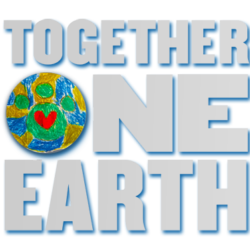I’ve been vegan, vegetarian, and now pescatarian, but for the majority of my life, up until around fourth grade, I ate meat. I’ve always been passionate about animal rights, but two of my favorite foods, prior to my pescetarianism, were chicken noodle soup and bacon. I had attempted multiple to try being vegetarian, but with my family still eating meat it proved as too much of a challenge for me. I felt in my heart that I might not be doing what is moral by eating animals, but I justified it because meat tasted good, and there was no one to set an example for me. Eventually, it was time for my family and I to face the truth. My parents watched a horrifying video about animals bred for slaughter and that was the breaking point.
After the immediate decision to become vegetarian, I found myself faced with a moral dilemma between myself and everyone else. Amongst my immediate family, the choice is simple; I don’t eat meat because they don’t either, and I feel that choosing to not eat animals falls along the lines of my moral beliefs. I don’t feel the need to “fit in”, and as a family, we share similar views.
I know many people who chose to eat meat; people I look up to (such as Temple Grandin and Ian Somerhalder), friends, and other family members not living in my household. In my family, I’m the leading animal rights advocate, but I’m also a moral relativist, perhaps because of my middle school which taught me to always be open to other people’s perspective. I’ve found myself torn and confused. If so many other people that I know are kind people, some of whom are also passionate animal activists, can justify eating animals, then why can’t I? Perhaps, if our life style was more like the Native Americans where animals weren’t bred solely for slaughter and treated in such inhumane ways (not always, but it can’t be guaranteed) then I would eat meat.
Outside of my family, I feel more conscientious about my pescetarianism and how people view me for it. Although some may admire me, I worry that people may prejudge me because of some stigmas around pescetarianism or vegetarianism. For example, I would never end a friendship simply because my friend eats meat because I understand that while I can offer my advice, I can’t force anyone to do anything. Also, unlike the word vegetarianism (vega) might suggest, I’m not limited by my food options. There are many foods I can still eat, and I don’t just eat salad.
I’ve had many conversations with my family and done some research, and I’ve begun to realize that even while I don’t judge people as good or bad for eating meat, I don’t need to agree with their choices.
From a utilitarian point of view, I’m choosing to not eat meat in order to bring myself pleasure that I’m not hurting animals but also to escape the pain of guilt. Although my choice of being vegetarian agrees with the part of utilitarianism that says everyone is the same, vegetarianism does not agree that the ends justify the means (killing animals that have been treated in cruel ways).
I now understand that I can’t rely on others to define what I think is moral because they’re not me. Instead of worrying what people will think, I should be confident in who I am–an animal rights activist because people tend admire people who are confident in themselves.

